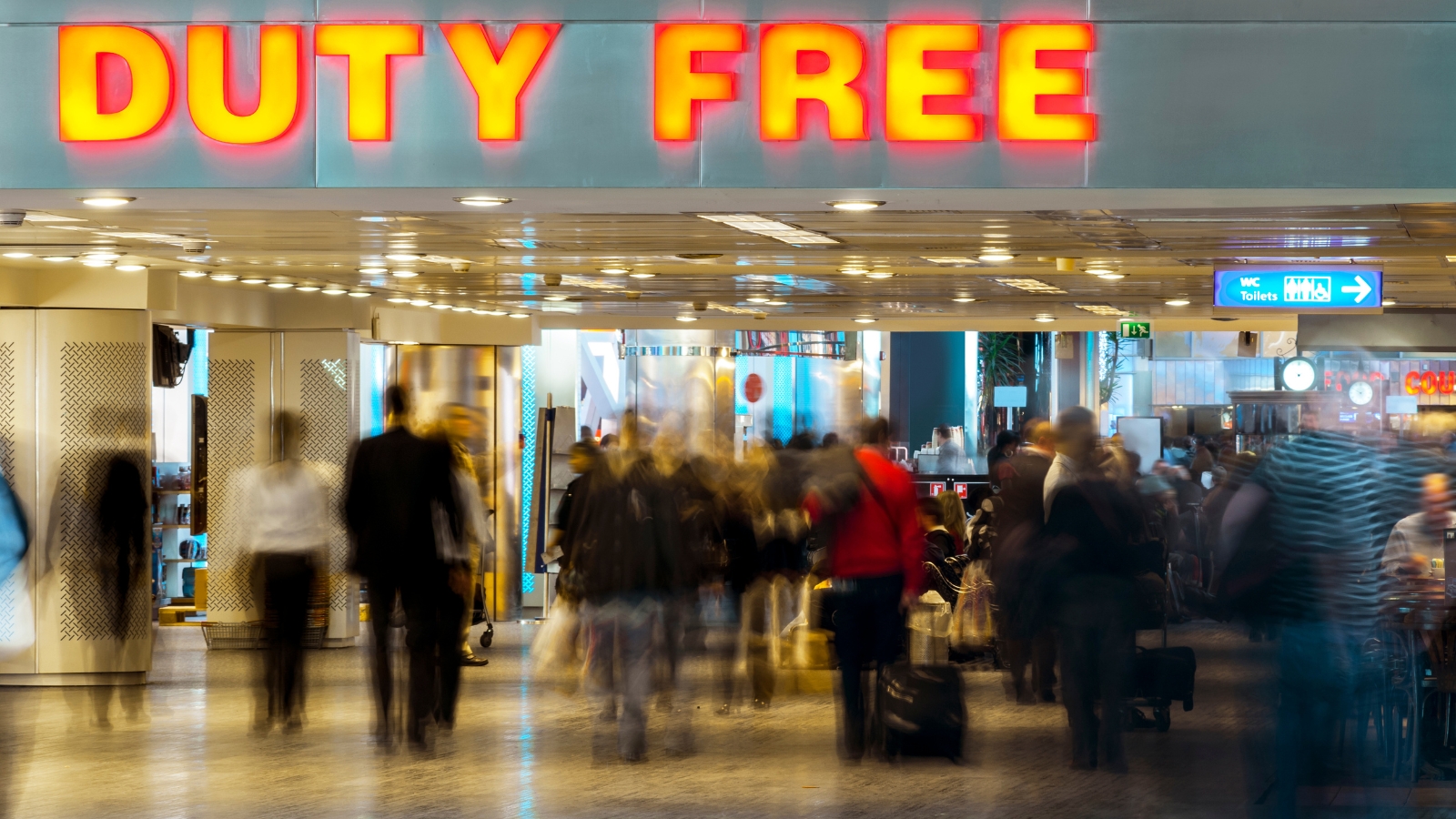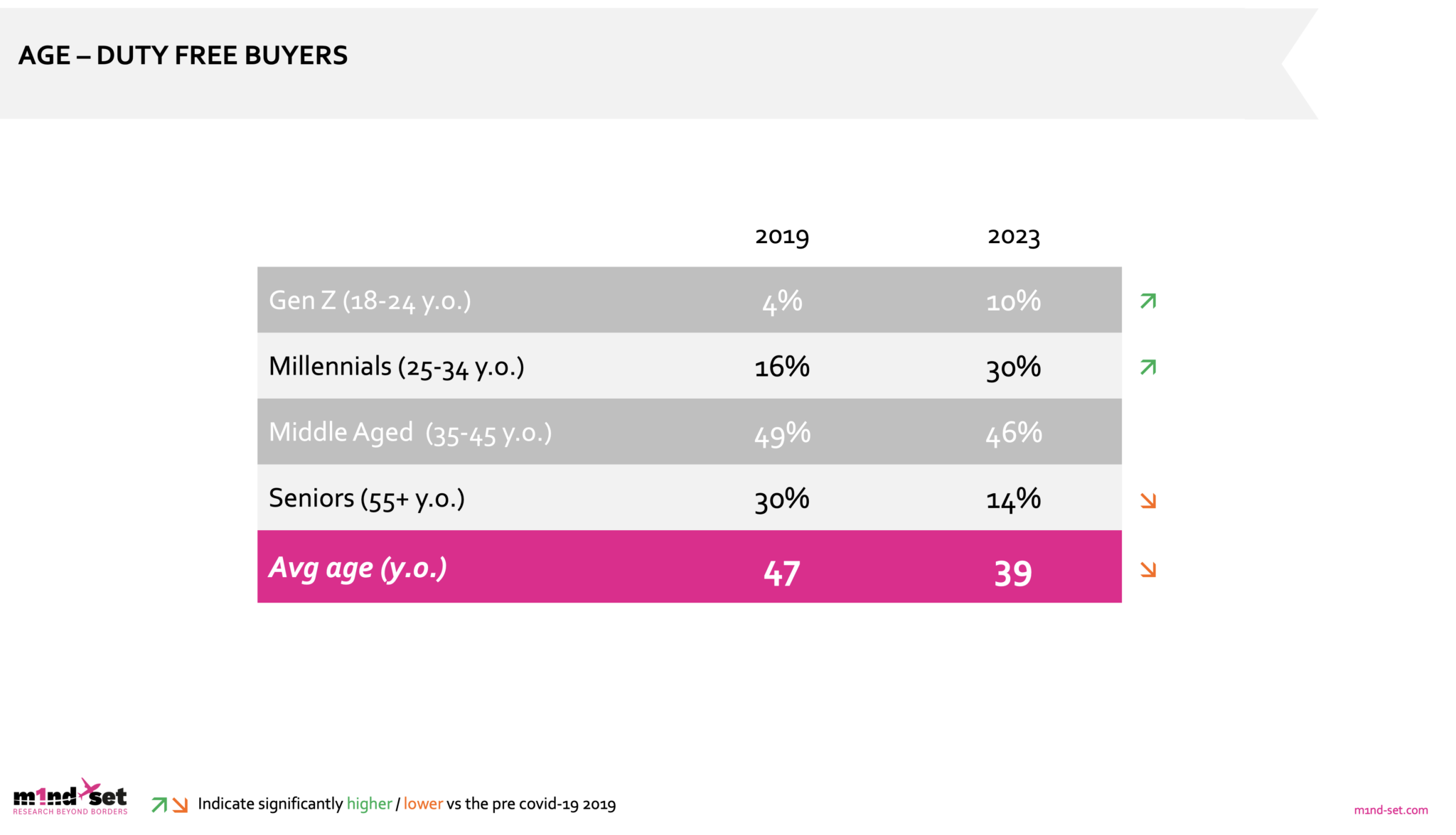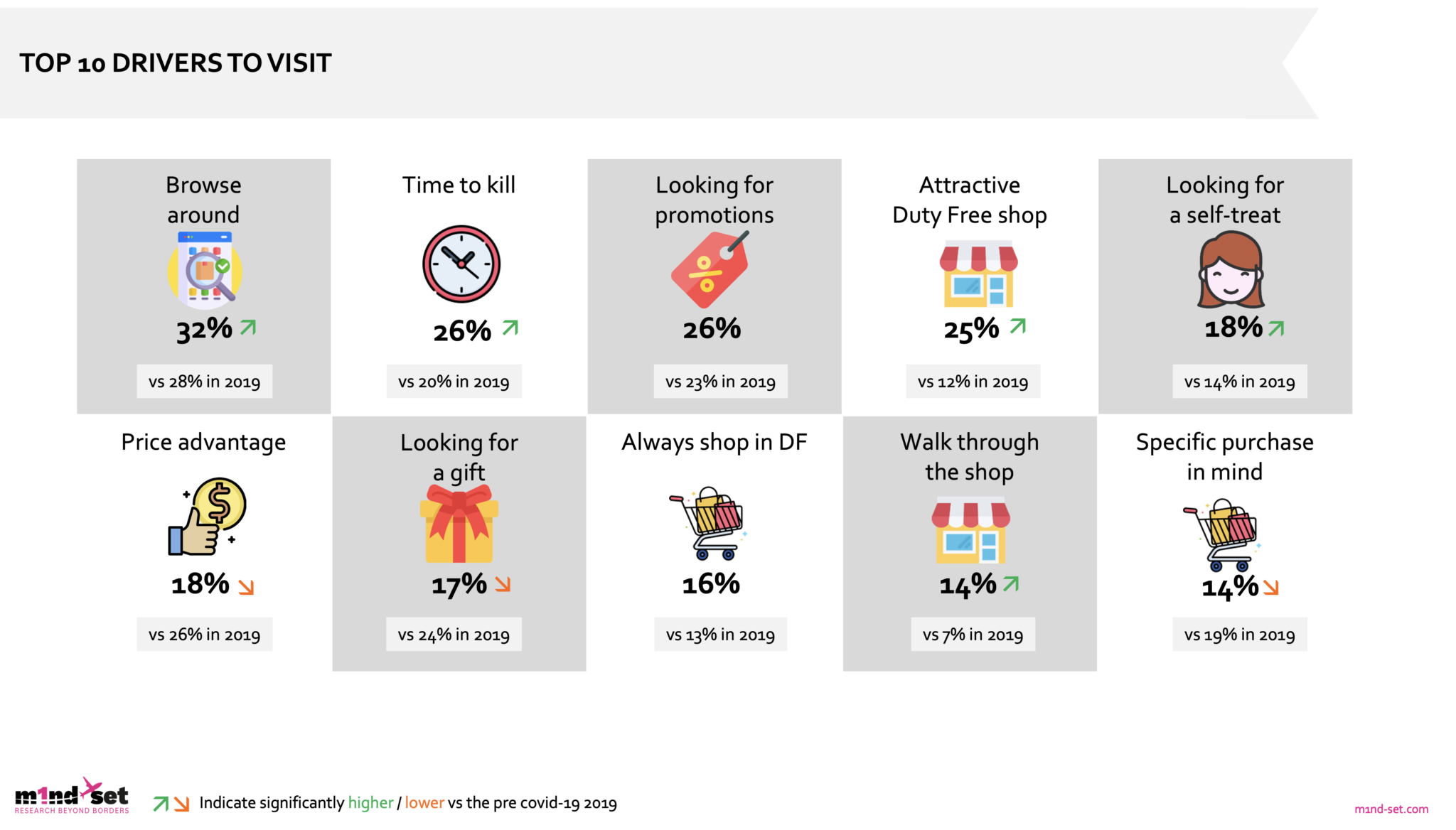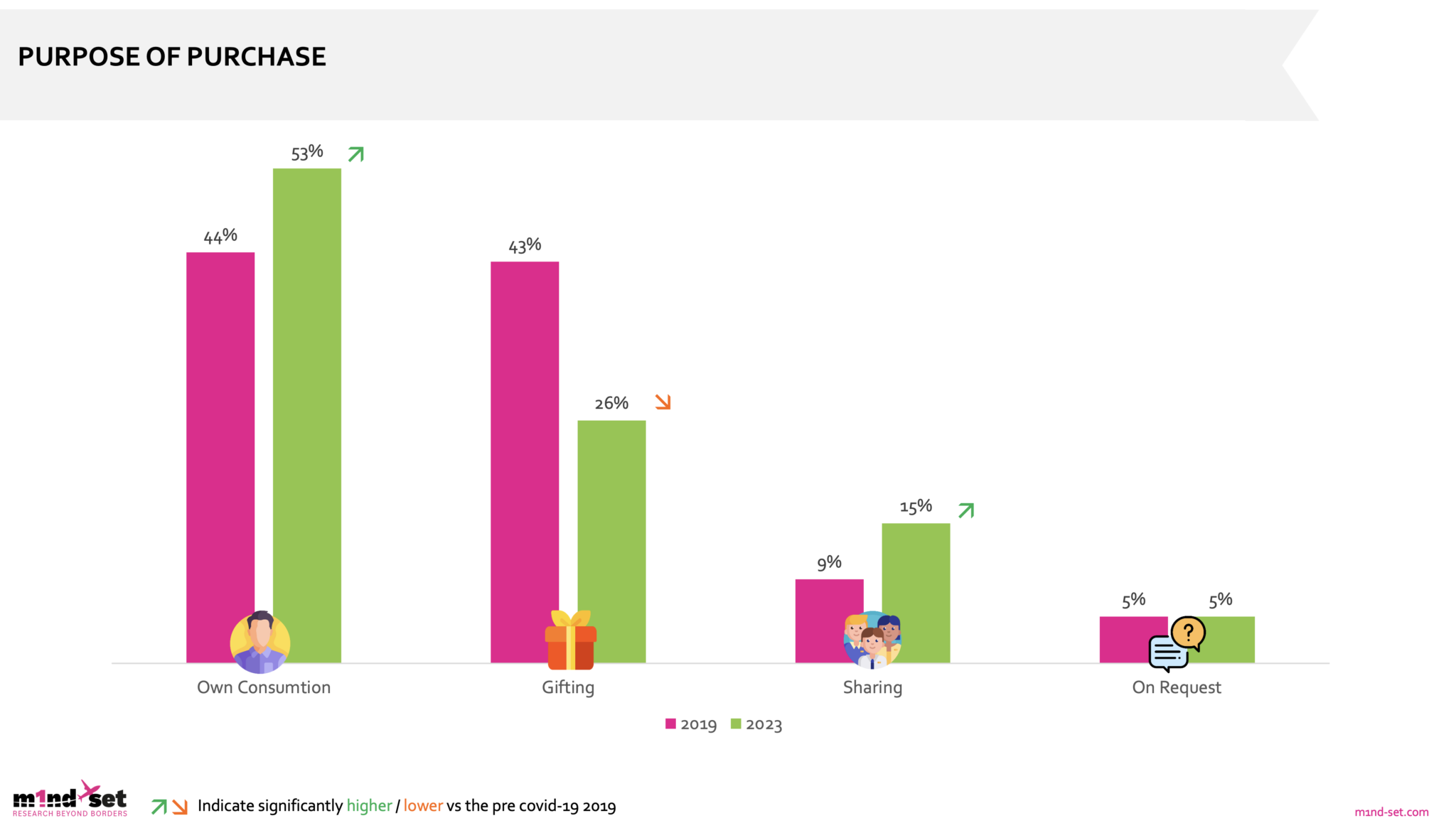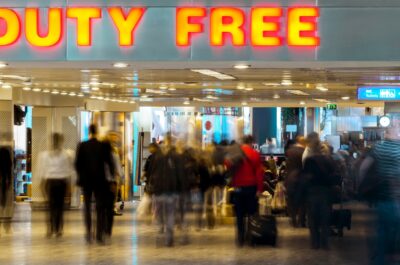The latest research from m1nd-set, comparing pre- to post-pandemic shopper behaviour has identified considerable differences in both the socio-demographic profile and shopping behaviour among duty free shop visitors and purchasers.
Comparing shopper profiles and behaviour between 2019 prior to the pandemic and 2023, the research highlights the shifts in age demographics between the two periods. Duty Free visitors
are significantly younger in 2023 with an average age of 40 compared to 47 in 2019, according to the Swiss research agency. Duty Free buyers are younger still with an average age of 39 compared to 47 before the pandemic. Among buyers in Duty Free, the share of Gen Zs has more than doubled from 4% to 10%, the research reveals. So too has the percentage of Millennial buyers, who now represent 30% of all Duty Free buyers, according to m1nd-set. This is nearly twice the percentage of Millennial Duty Free buyers in 2019, when they counted 16% of global shoppers. Middle-aged shoppers have fallen by a modest 3%. The m1nd-set research reveals that the largest decline in age-segments among Duty Free buyers is among of Seniors; the age segment represents 14% in 2023 compared to 30% in 2019, a decline of more than 50%.
Other major differences identified in the research include the shopping motivation, both the drivers to visit and purchase, as well as the changes to which categories are purchased and the
amount spent. While the motivation to visit the shops in 2023 is driven for the most part by the desire to browse around and kill time, the driver to visit that has seen the most substantial change
is the attractiveness of the Duty Free shops which has more than doubled, increasing from 12% in 2019 to 25% in 2023. Price Advantage is considerably less prevalent as a reason to visit the shops in 2023 than it was in 2019, falling 8 points from 26% to 18% pre to post-Covid, according to m1nd-set.
Shop visitors in 2023 clearly appear to be more self-indulgent since Covid. Visitors looking to self-treat have increased from 14% to 18% while those visiting the shops looking for a gift have fallen in number from 24% in 2019 to 17% in 2023. This is consistent with the shift in the purpose of purchase, the research reveals. Shopping for gifting to others has dropped significantly between
2019 and 2023 with just over one quarter (26%) of shoppers saying they purchased in the Duty Free shops for gifting this year, compared to 43% in 2019. Self-purchases on the other hand have
significantly increased in 2023, up by 9 points from 44% in 2019 to 53% in 2023. Duty Free shoppers have not become totally self-centred, according to the research; purchases for sharing have also increased from 9% pre-Covid to 15% in 2023.
As for category preferences, both the Food & Confectionery and Tobacco categories have seen an increase in both visitors and purchasers. 36% of shoppers purchased Food & Confectionery in
2023 compared to 31% in 2019, and 18% say they purchased Tobacco, up from 13% in 2019. The percentage of shoppers purchasing Beauty has fallen 5 points between 2019 and 2023, from 43%
to 38% while Souvenirs & Gifts shoppers have dropped 10 points to 13% in 2023 from 23% in 2019.
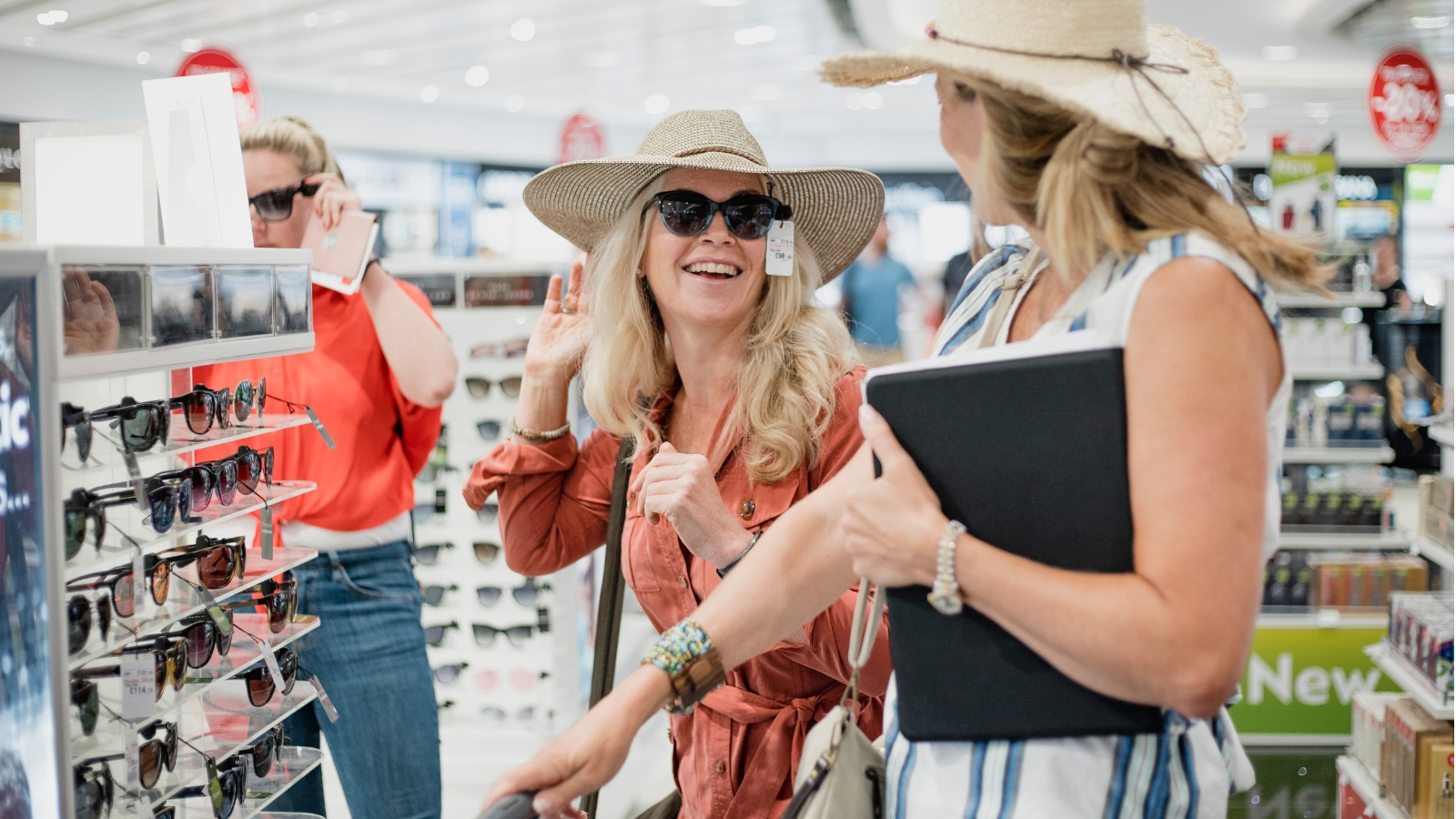
The trends in spend per category mirror this shopper behaviour also. Overall, Duty Free shoppers tend to spend less in 2023 than they did pre-Covid, as the average spend across all categories
has fallen from by around 10% between 2019 and 2023. The categories that have influenced this overall decline in average spend include Souvenirs & Gifts, Beauty and Toys. Inversely, Food &
Confectionery, Clothing & Accessories and Jewellery & Watches have all benefitted with increased average spend between 2019 and 2023.
The importance of a robust offer of travel retail exclusives to cater to these desires for rarity and uniqueness has never been so important, according to the m1nd-set research. Post-pandemic
shopping behaviour points to an increasing preference for new and exclusive products as well as products purchased on promotion.
Dr. Peter Mohn, Owner and CEO at m1nd-set explained: “We see from the research that the perception of getting a good deal on new and exclusive quality products adds to the overall value proposition for consumers, when purchasing in Duty Free. The promotions and special offers, combined with the exclusivity factor, create a heightened sense of value for shoppers. When looking at how shoppers purchased exclusives items in travel retail, products that were on promotion or products they had never purchased before, Mohn added, “we see that shoppers in 2023 are significantly more likely to do so than they were before the pandemic.”
“Much more shoppers purchased travel retail exclusives, a significant increase compared to 2019, Mohn continued. “The same percentage purchased products on promotion, 20% more than in
2019 and a high share purchased a product they had never bought before, also higher than in 2019, albeit with less of a difference compared to 2019” Mohn concluded.
Theodore is the Co-Founder and Managing Editor of TravelDailyNews Media Network; his responsibilities include business development and planning for TravelDailyNews long-term opportunities.












